Debt Distress and the Right to Food in Africa
More than half of low-income countries are at risk of debt distress or have already defaulted. The debt crisis, while exacerbated by recent crises, has been looming for several years. According to the United Nations, 3.3 billion people now live in countries that spend more on interest repayments than on education or health, and in sub-Saharan Africa, governments are spending 53 percent of revenue on debt servicing.
Food Security and Nutrition Indicators Dashboard-Africa South of the Sahara
The Food Security and Nutrition Indicators Dashboard is an interactive tool specifically designed to provide a comprehensive overview of nutrition and food security metrics for countries in Africa South of the Sahara. This dashboard allows users to analyze chronic and acute indicators, compare various metrics, and visualize complex data through customizable charts and maps. It serves as a valuable resource for policymakers and researchers working to address food security challenges and improve nutrition across this region.
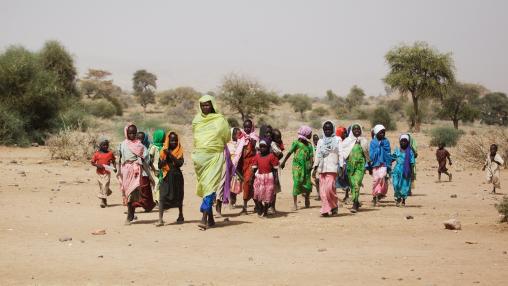
Sudan’s food crisis deepens as conflict intensifies
After 14 months of escalating internal conflict, Sudan is now confronting its most severe food security crisis on record. The latest Integrated Food Security Phase Classification (IPC) report, released June 27, reveals a grim picture: More than half the population is facing acute food insecurity, with a high risk of famine in multiple regions if immediate action is not taken.
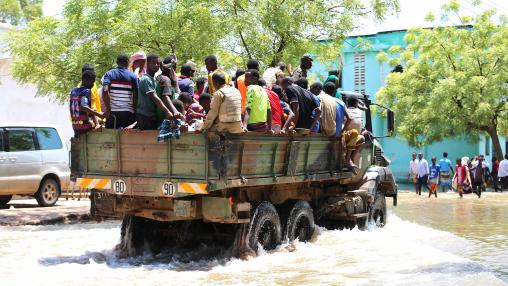
Increasing Resilience in the Face of Climate Shocks: Evidence from Somalia
In October 2023, the Baidoa district of Somalia experienced severe flooding, impacting more than 120,000 people, including nearly 100,000 internally displaced people. In a new IFPRI learning brief, researchers explore how this extreme weather event affected households in the area and how the country’s Ultra-Poor Graduation (UPG) intervention can play an enhanced role in protecting vulnerable populations from future shocks.
Sudan at a Crossroads: Food Systems, Hunger, and Humanitarian Aid During Civil Conflict
In April 2023, Sudan descended into a violent civil war that has displaced more than 8 million people, destroyed critical infrastructure, and left half the country’s population in need of humanitarian assistance. More than one year later, the unresolved conflict threatens agricultural production, agroprocessing, and trade, exacerbating Sudan’s status as a failed state. Sudan’s trajectory is therefore relevant for the broader community of scholars and practitioners working to enhance food systems and food security in fragile states facing complex humanitarian emergencies.
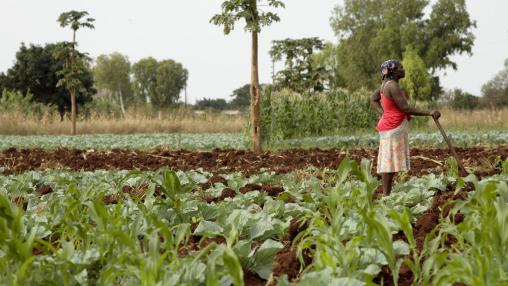
Intersection of Water, Food, and Nutrition Security: Evidence from SSA
The UN estimates as many as 2.2 billion people worldwide do not have access to clean, safe drinking water. As rising global temperatures, changing precipitation patterns, and a growing global population put additional pressures on this critical natural resource, water insecurity will likely become an even more important determining factor in global and regional conflict. In a recent paper in Food Security, researchers examine the role of water insecurity in two other related challenges: food insecurity and dietary diversity.
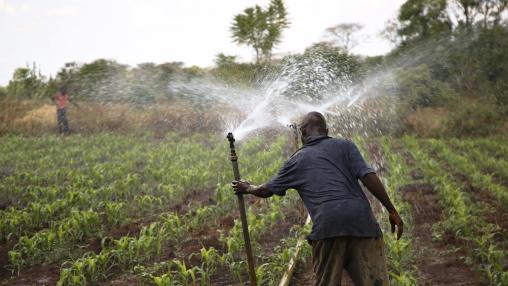
Evaluating Fertilizer Subsidies in Malawi
Since the 1950s, Malawi has used a national fertilizer subsidy program as a way to spur use of inorganic fertilizers, boost domestic maize production, and ensure food security and self-sufficiency for smallholder farmers. According to new working paper from the Malawi Strategy Support Program, however, the national subsidy program may not be the most efficient investment for improving the country’s food security and domestic production goals.
Navigating Sudan’s Conflict: Research Insights and Policy Implications
The conflict in Sudan has persisted since April 2023, with the violence intensifying in December 2023. As of February 2024, the crisis has displaced more than 7.8 million people internally, with an additional 1.7 million seeking refuge across borders. The violence has now spread into parts of central and eastern Sudan that were initially considered safe havens, resulting in more displacement, and further increasing pressure on states in eastern Sudan.
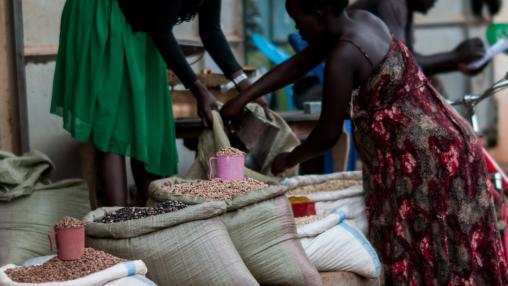
Multiple Pathways to Better Food and Nutrition Security: Evidence from Uganda
More than half of the adult population in Uganda is employed in the agriculture and fishery industries, with an estimated 36 percent engaging in subsistence agriculture. Despite the importance of agriculture to Uganda’s economy, however, the country continues to suffer from high rates of food insecurity. Small-scale farmers are often particularly hard hit by the cycle of poverty and hunger due to the vulnerability of their livelihoods to price shocks, extreme weather events, and other disruptions.
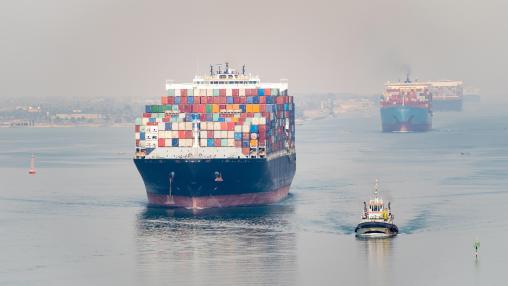
Impacts of Red Sea shipping disruptions on global food security
The recent attacks of Yemen-based Houthi rebels on ships in the Red Sea have paralyzed shipping through the Suez Canal, forcing exporters in the Black Sea region and elsewhere to consider alternative—and more costly—shipping routes. In early January, A.P. Moller-Maersk A/S, the world's second-largest container ship company, announced it would suspend shipments through the Red Sea. Trade volumes in the Suez Canal are down an estimated 40% since the attacks began.